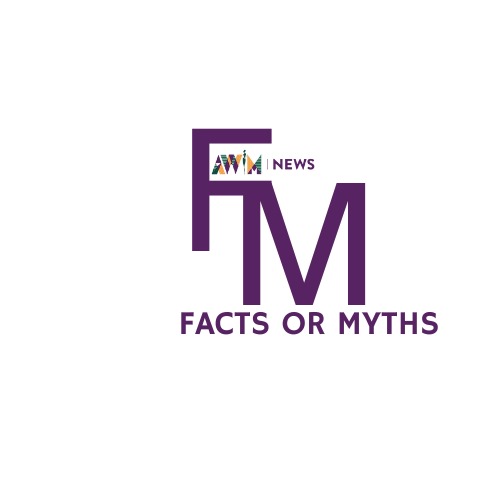Groundbreaking Workshop on AI and Technology-Facilitated Gender-Based Violence at AWiM24
Trending
Sunday June 1, 2025
Trending


Breastfeeding is the process of feeding a child or infant with a mother’s natural milk. It is the most important step after childbirth. As a crucial aspect of child development, breastfeeding is a form of bonding between the child and mother and is necessary for the child’s physical, mental, emotional, and psychological growth. The success of each breastfeeding stage hinges on the mother’s ability to dispel myths and misconceptions during this period. Therefore, this article aims to highlight some of these common fallacies and explain the corresponding facts.
You cannot take any medication if you are breastfeeding – Misleading
As stated by UNICEF, “It’s important to inform your doctor that you are breastfeeding and to read the instructions with any medications you buy over the counter. It might be necessary to take medications at a specific time or in a specific dosage, or to take an alternative formulation. You should also tell the baby’s doctor about any medications that you’re taking.”
The Canadian Breastfeeding Foundation also explains that “There are very few medicines that a mother cannot take safely while breastfeeding. A very small amount of most medicines appears in the milk, but usually in such small quantities that there is no concern.”
According to Dr. Oluwakemi Bakare, an obstetrician and gynecologist in Nigeria, “Small amounts of any medicine you take can pass through the breast milk to the baby. Generally, the amounts are very low and very few medicines are unsafe while breastfeeding. Most antibiotics, asthma inhalers, recommended doses of vitamins and painkillers like paracetamol can be taken. We should be careful with ibuprofen, aspirin, codeine, nasal decongestants and cough syrups while breastfeeding. Talk to your doctors before taking medicines for coughs.”
She further emphasised that “Taking illegal and addictive drugs like cocaine and heroin while breastfeeding can affect your ability to care for the baby. Alcohol can pass through breast milk. An occasional drink is unlikely to harm your baby especially if you wait at least 2 hours after having a drink before breastfeeding. Regularly drinking above the limits can be harmful for you and your baby.”
You should totally avoid the use of formula while breastfeeding – Misleading
UNICEF notes that “Mothers may decide they need to use formula on some occasions, while continuing to breastfeed. It is important to seek unbiased information on formula and other products that replace breastmilk. To keep breast milk production going, continue offering the breast to your baby as often as possible.”
The Canadian Breastfeeding Foundation adds, “Formulas are made to suit every baby as opposed to breastmilk which is for your baby. Formulas succeed only at making babies grow well, usually, but there is more to breastfeeding than nutrients.”
In line with the Canadian Breastfeeding Foundation findings, Dr. Bakare says, “Mixed or combination feeding is when a mother offers her baby formula feed alongside breastfeeding. This can be done after normal breastfeeding is well established. Mixed feeding may lead to reduced breastfeeding frequency and hinder the development of a strong maternal and infant bond.”
Exercise affects the taste of breast milk – False
UNICEF states that “Exercise is healthy, also for breastfeeding mothers. There is no evidence that it affects the taste of your milk.”
Based on the findings of Australian Breastfeeding Association, “Mild or moderate exercise does not cause lactic acid to increase in breast milk and does not affect the baby taking the milk. Exercise is an important part of life for many mums, including those who are breastfeeding”.
Similarly, Dr. Bakare notes that, “Mild to moderate exercises are safe during breastfeeding and there is no evidence that this affects the taste of milk produced during lactation. Exercise won’t affect milk supply but if you are exercising a lot, you have to make up for the extra calories expended. Breast milk is still as nutritional as ever, even after a workout.”
You should not breastfeed if you are sick – False
According to UNICEF, “Depending on the type of sickness mothers can usually continue breastfeeding when they’re sick. You need to make sure you get the right treatment, and to rest, eat and drink well. In many cases, the antibodies your body makes to treat your disease or illness will pass on to your baby, building their own defenses.”
Similarly, the Canadian Breastfeeding Association, reports that “With very, very few exceptions, the mother’s continuing to breastfeed will actually protect the baby. The baby’s best protection against getting the infection is for the mother to continue breastfeeding.”
Dr. Bakare also complements the explanations of UNICEF and the Canadian Breastfeeding Association. She says, “It is absolutely safe to breastfeed with common illnesses like cold or flu. It is however recommended that proper hygiene and hand washing practices should be continued during breastfeeding. Continuing to breastfeed will help maintain the milk supply and provide the baby with protection against the sickness the mother is experiencing. During illness, the body starts producing protective antibodies and these antibodies are further passed through the milk to the baby for protection.”
Conclusion
Breastfeeding is crucial for a child’s healthy growth and development. It’s essential for mothers to attend ante-natal and post-natal sessions to consult with their doctors about myths and unverified information. The goal of breastfeeding is to ensure that every child develops steadily, along with their peers around the world.
We’re not gonna spam. We’ll try at least.

Copyright 2020. African Women In Media
Copyright 2020. African Women In Media
Recent Comments